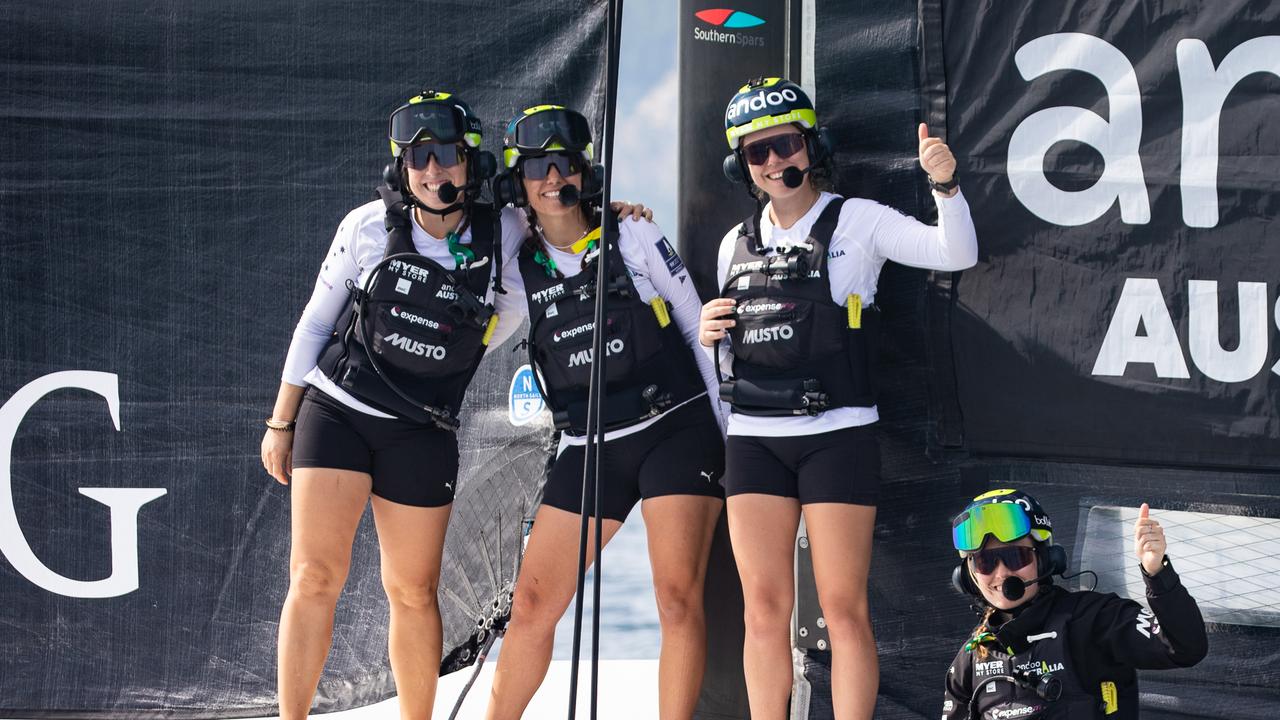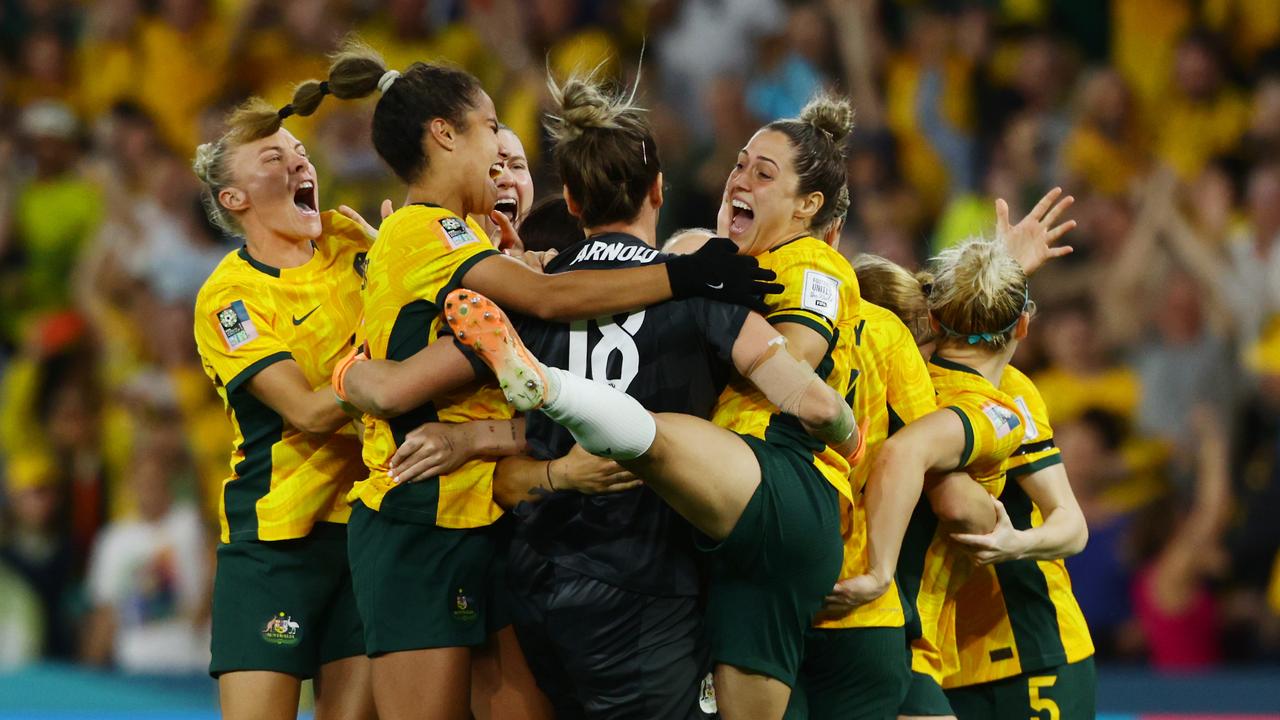Inclusion conversation is very personal for Matildas champion Tameka Yallop
Tameka Yallop didn’t tell teammates she was gay until a decade into her international career. Now she wants to use her platform to make life better for other girls.
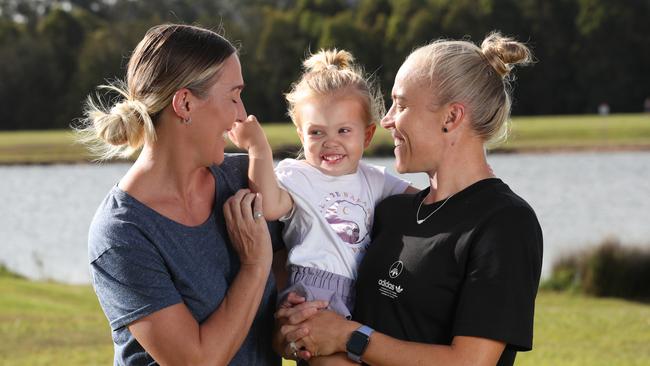
Insight
Don't miss out on the headlines from Insight. Followed categories will be added to My News.
Tameka Yallop had been playing for the Matildas for almost a decade before she felt comfortable sharing with people that she was gay.
For much of her professional football career, the midfielder felt her sexuality was something that “had to be suppressed”.
It wasn’t until she met her future wife, ex-New Zealand international Kirsty Yallop, that Tameka felt ready to open up to those around her.
“There was a long period of time when I was playing internationally that it was nothing that was brought up. I didn’t necessarily keep it a secret, but it’s not something I would have talked about or made known to my teammates,” she told News Corp.
“It probably wasn’t until I met Kirsty that I was able to talk about it and felt we had each other and we would support each other in whatever was said or maybe looked down upon, or if we did come into any hurdles.
“I felt for a long time it had to be suppressed and not really made common knowledge.”
Tameka only learned of the Matildas, Australia’s representative female football team, when she was 13. Up to that point she had played exclusively in boys’ teams – only after she joined the Queensland Academy of Sport did she play alongside other girls.
Her relentless pursuit of a Matildas jersey came to fruition just three years later, when she made her senior debut aged 16 in an 8-1 Olympic qualifying win over Hong Kong in 2007.
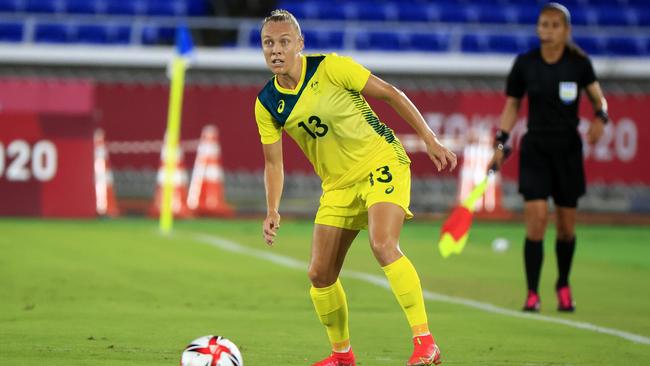
Tameka was part of the team that won the 2010 AFC Women’s Asian Cup and made the quarter-finals of the 2011 FIFA Women’s World Cup – all the while choosing to keep her sexuality largely a secret to those around her.
Being an athlete helped in that regard. But Tameka knows her experience is not the same as everyone else’s.
“I think it can be a lot harder for other people,” she said.
“For me, the discipline of training and working hard and focusing on something, I was able to take my mind off it and focus on football … I think that’s what sport does, it gives you a release to not concentrate on the parts you’re scared or nervous about.
“I think when you compare being in a sporting team to maybe being at school, during that time (as a teenager) they were two completely different environments – one would take my mind off it and make me relaxed and the other, (I) was always more hesitant.
“Not necessarily (about) not belonging, but being a bit different, so I think sport for me was definitely very helpful.”
Almost eight years into her international playing career, at the 2015 World Cup in Canada, she first met Kirsty. There the fierce international rivals quickly formed a bond, and began dating soon after.
In 2017 they became teammates at Norwegian club, Klepp IL, and by December were engaged. The two married in February 2019 and their daughter, Harley, was born in August 2020.
“We were really lucky that we ended up in the same club and that made it a lot easier,” Tameka said of her relationship with Kirsty, who has now retired from professional football.
“Every month we would go our separate ways for 10-12 days but honestly, to be able to play football with Kirsty was amazing, mainly because she was such a great footballer.
“It was a little controversial, we were both playing in midfield, but we made a great team when we were on (the pitch together) and great rivals when we were on separate sides.
“I think I’m pretty lucky to have Kirsty as my life partner, knowing she’s been through the exact same pressure environments I have, with her playing for New Zealand and overseas at professional clubs, too,” Tameka added.
“The fact that we have that dynamic in our relationship has really helped me through motherhood and then also continuing football through that period of time.”
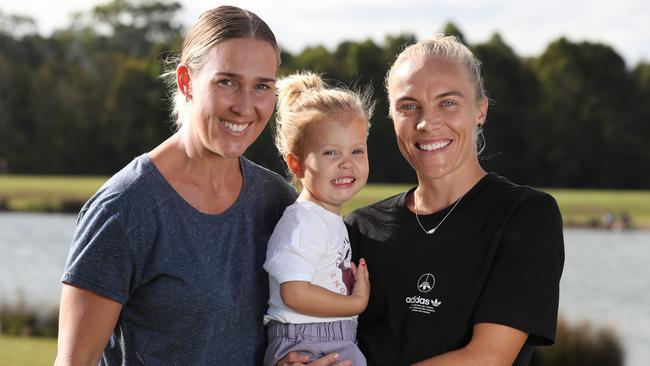
With 109 international starts to her name, Tameka is the 10th-most capped player in Matildas history.
She shares the top 10 with five current teammates – two of whom, Elise Kellond-Knight and Kyah Simon – debuted in the same year.
A 13-year-old Tameka dreamt of one day pulling on a Matildas jersey and representing Australia at international level, but never did she consider the lasting legacy her generation would leave on the game.
A major milestone came in 2019, when the Matildas became the first female football side in the world to receive the same pay as their male counterparts.
The long-awaited CBA, which the players had campaigned for years to achieve, broke new ground in Australia and the world. It was a major step forward in gender equality.
In a similar vein, Tameka now feels fully supported as a gay woman playing for the Matildas, who on Sunday wore their first-ever Pride jersey in the Cup of Nations clash against Spain in Sydney.
But acceptance has not always been the norm, and in many countries same-sex relationships remain a divisive topic.
That’s not good enough, Tameka says.
“Globally? I don’t think so, no.
“The environment we have in the Matildas now is the best environment I’ve been part of in terms of inclusion, and I think women’s sport in Australia is definitely driving that. But on a global scale … there’s still a long way to go.
“I think sport, whether it’s men’s or women’s, is a great platform for making change – it’s something that can be inclusive right down to the grassroots. It is naturally a platform that you can get inclusiveness and support if you are able to create the right environment.”
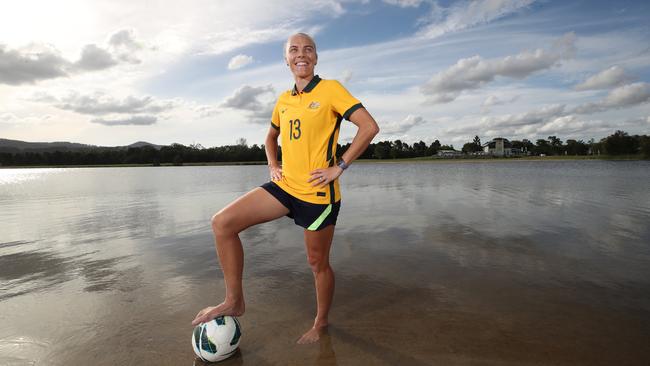
The controversial banning of symbolic “One Love” armbands at November’s FIFA Men’s World Cup in Qatar, a country where same-sex marriage is illegal, put LGBTQ inclusion back in the spotlight.
Though frustrated by how things played out in Qatar, Tameka felt the conversation that developed was ultimately positive in the ongoing push for equality.
“I definitely think something has to happen to make change, and just the fact those conversations were being had was a positive,” she said.
“Obviously, you want a certain standard just to be there all the time and for it to be globally (accepted) but that isn’t the case, so you do have to be able to have those hard conversations.”
Now a similar controversy looms ahead of the 2023 FIFA Women’s World Cup, co-hosted by Australia and New Zealand, with FIFA reportedly fielding a sponsorship offer from Visit Saudi, the tourism arm of Saudi Arabia – a country strongly criticised for its repression of women and history of human rights abuses.
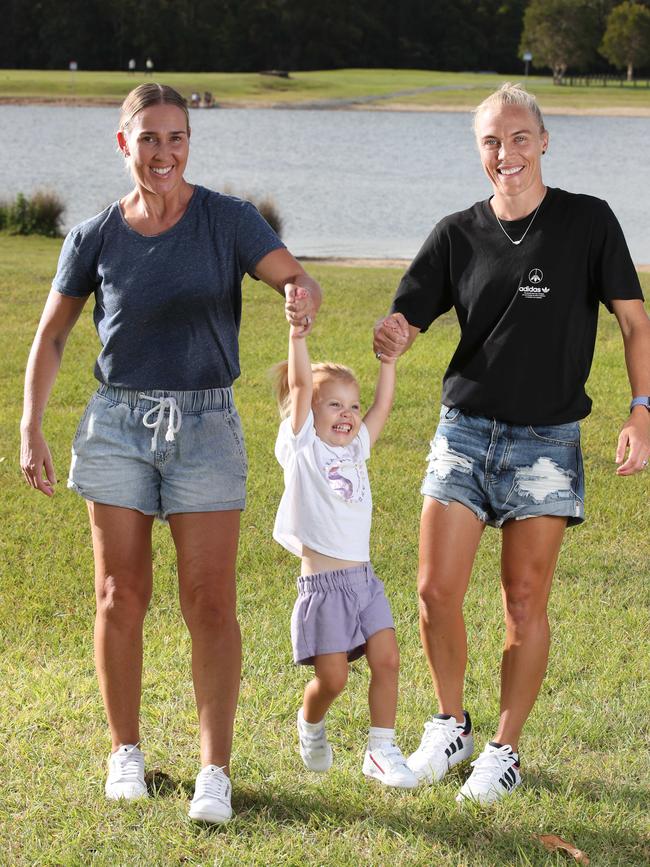
In a perfect world, Tameka and her Matildas teammates would need only to focus on football. Particularly with a “once in a generation” opportunity to win a World Cup on home soil is at stake.
But she knows, perhaps better than most, the lasting impact she and her teammates can have with the platform they have been afforded.
“For me I think it’s a bit similar to the other topic (Men’s World Cup) – is it going to see change, is it going to bring up (conversation) in other countries (in which) females have been suppressed, are there going to be changes there, is it going to help in the long run for global change?” Tameka said.
“You want to be able to fully focus and give yourself to your teammates to pursue something as a group to lift that trophy. (But) at the same time, being a female team and being on a very public platform, you do want to make change and you want to see those changes and I guess leave a lasting legacy.
“So it’s about how you juggle both of those (and) thankfully we do have a lot of support within the Matildas environment.
“If I was to go back to my club now, everyone would ask how my wife is, how my daughter is – it’s just commonly accepted, it’s not something that’s avoided and that’s the same as in the national team as well.
“Everyone is really inclusive. It’s just normal, which is how it should be.
“Seeing your club or your team wearing a Pride shirt or your captain wearing a rainbow armband, those little things really do make you feel a lot safer and included and, I guess, supported.”
Some fans with their heads in the sand have and will cry foul over political statements being tied to sport.
But for Tameka, and many of her fellow athletes, there is nothing political about being gay.



